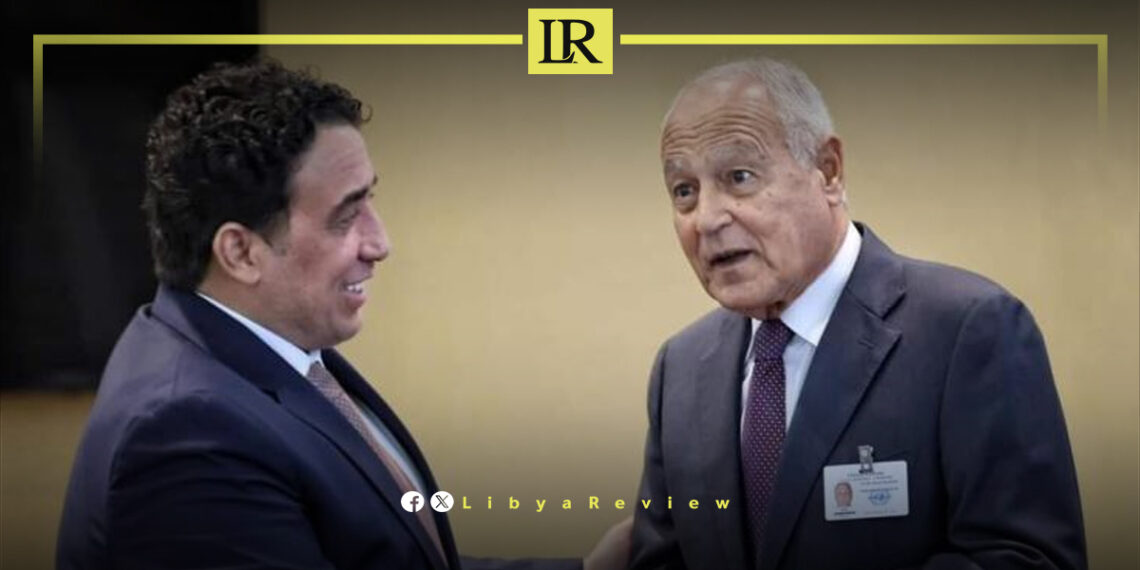On Tuesday, the Head of the Libyan Presidential Council Mohamed Al-Mnifi met with Arab League Secretary-General Ahmed Aboul Gheit at the Libyan Permanent Mission in New York.
The meeting took place during the high-level segment of the 79th United Nations General Assembly and focused on the political and economic challenges facing Libya.
According to a statement from the Libyan Presidential Council, the two leaders discussed the urgent need to resolve Libya’s ongoing political crisis. Aboul Gheit reaffirmed the Arab League’s commitment to supporting Libya’s sovereignty, independence, and territorial integrity.
He emphasized that the organization is ready to provide continued support to help Libya return to a stable political track, urging all parties to resume national dialogue under Arab League auspices.
Aboul Gheit stressed that dialogue among all Libyan factions is crucial to achieving comprehensive national reconciliation. He called for a Libyan-led solution to the crisis, emphasizing that the political process should be owned and driven by the Libyan people without external interference. This approach, he noted, would help forge a roadmap for national elections, which are critical to stabilizing the country.
He also highlighted the central role of the Libyan Presidential Council in guiding the country through this difficult period. He encouraged Libya’s leaders to build on existing efforts and resume dialogue, which he said the Arab League is willing to host. The meeting emphasized that cooperation with regional organizations like the Arab League is key to resolving Libya’s internal divisions and paving the way for lasting peace.
Meanwhile, Al-Mnifi expressed his gratitude for the Arab League’s engagement and reiterated his support for a political solution based on dialogue. He stressed the importance of continuing these efforts to build a unified Libya and restore stability, particularly as the country grapples with growing economic challenges.
The leaders also addressed broader regional issues, with a particular focus on the ongoing Israeli aggression against Palestine and Lebanon. Aboul Gheit praised Libya’s strong support for the Palestinian cause and commended the country’s solidarity with Lebanon. The discussion underscored the importance of a united Arab stance in defending Palestinian rights and countering Israel’s continued attacks in the region.
Libya’s solidarity with Palestine aligns with the wider Arab League agenda, reflecting the country’s foreign policy commitments even as it faces significant internal challenges. Al-Mnifi’s engagement with Aboul Gheit at the UN General Assembly highlights Libya’s determination to remain an active player in regional diplomacy while working to resolve its domestic political crisis.


